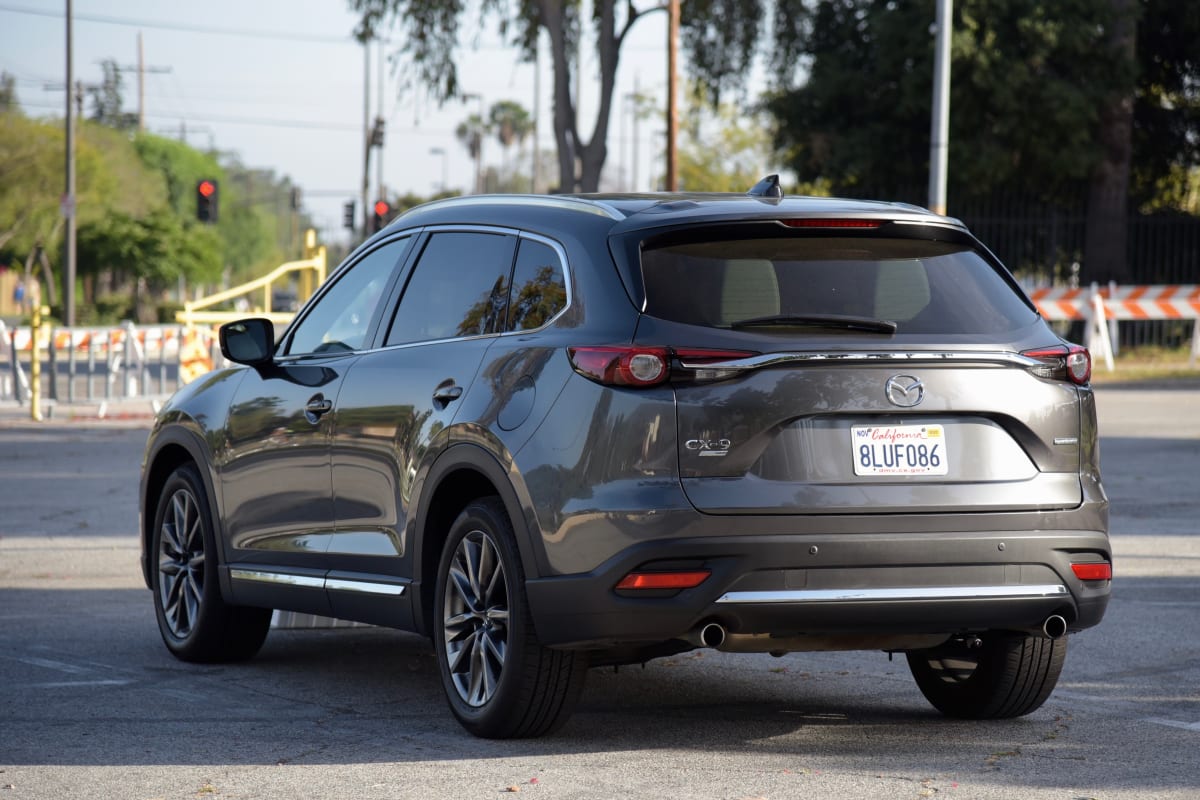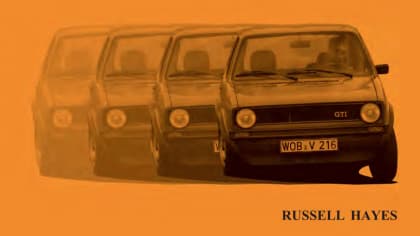Vehicle Review: 2020 Mazda CX-9
Published on Tue, May 26, 2020
By: Brian Kennedy
Mazda's reputation doesn't exactly invoke thoughts of a big, luxurious SUV. Yet here we are.
Check out our video review of the 2020 Mazda CX-9 on YouTube!
Get into the Mazda CX-9 Signature model’s driver’s seat, and you instantly feel taken care of. Everything around you is tailored for you, and you yourself are enfolded by the sport seat and its leather surfaces, which in the model I drove were light tan accented with black piping. The quality of the fitment is excellent. The controls are just techy enough to be modern, without going too far in an effort to impress. It’s quality, not gizmos, that you get with the Signature (top of the line) model.
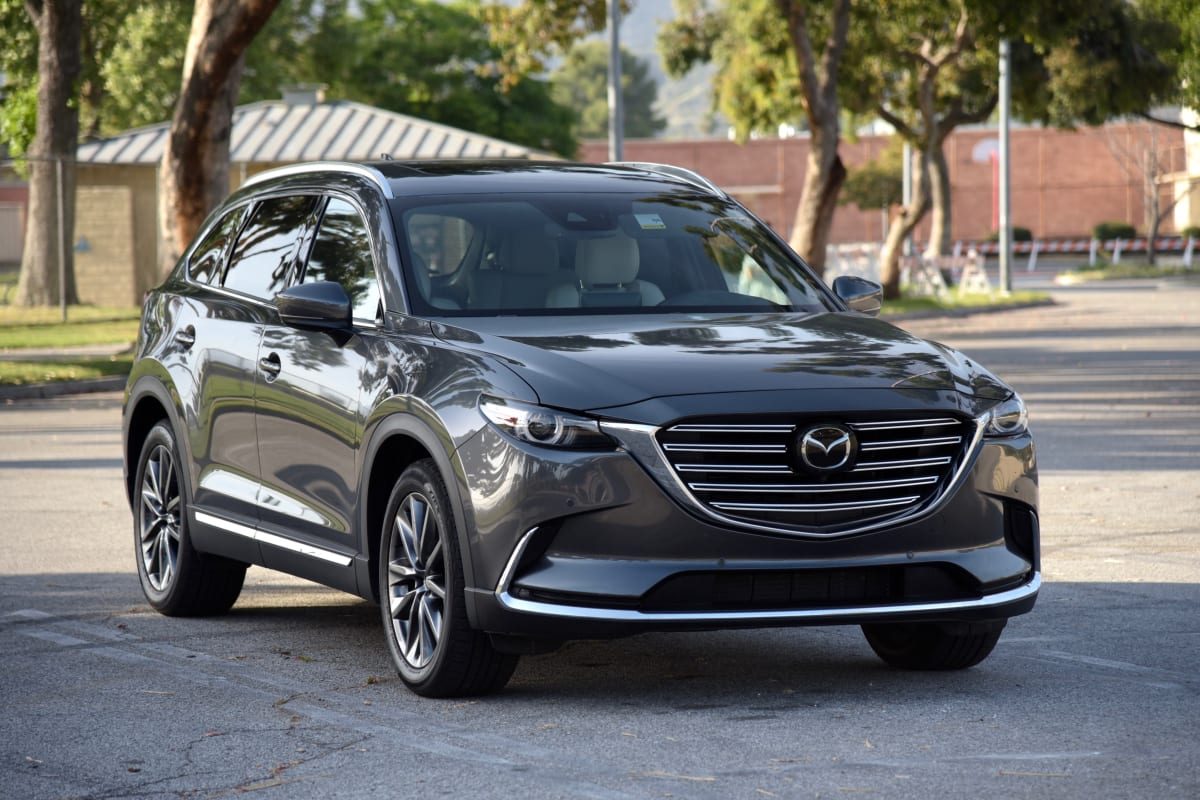
Not to be too old school, I’d say that the feeling I got each time I sat in the seat with the steering wheel and pedals in front of it was like the feeling someone might have had in the 1960s when they sprung for their first Lincoln. Like having stepped up to the top tier of automotive buyers, the reward was what they hoped it would be. My only question when I thought that was whether a Mazda was the right nameplate to be viewed as a luxury car. The answer: probably not, but it pulls the act off with aplomb anyway.
The ride is big-car self-assured, with a mixture of Mazda-inspired sportiness combining with the luxury. You hammer the gas, and you’re gonna scoot. There’s some gentle tug on the steering wheel as the AWD (standard on Signature, optional on certain other models in the lineup) system figures out where to send the power, but the overall feeling is that the car picks up its front end and gets to where you pointed it—fast. You won’t be disappointed in the 2.5-liter turbo. And you won’t even notice the turbo-ness, so smooth is the execution. The six-speed gearbox, which you can shift yourself (you’ll likely never do that, because the driving feel is plenty fun without bothering), does the shifting for you with no drama. Should you wish to sports-car things up, pull the stick towards you and then push ahead for downshifts, pull back for upshifting. The mechanicals are Mazda-smooth in a straight line.
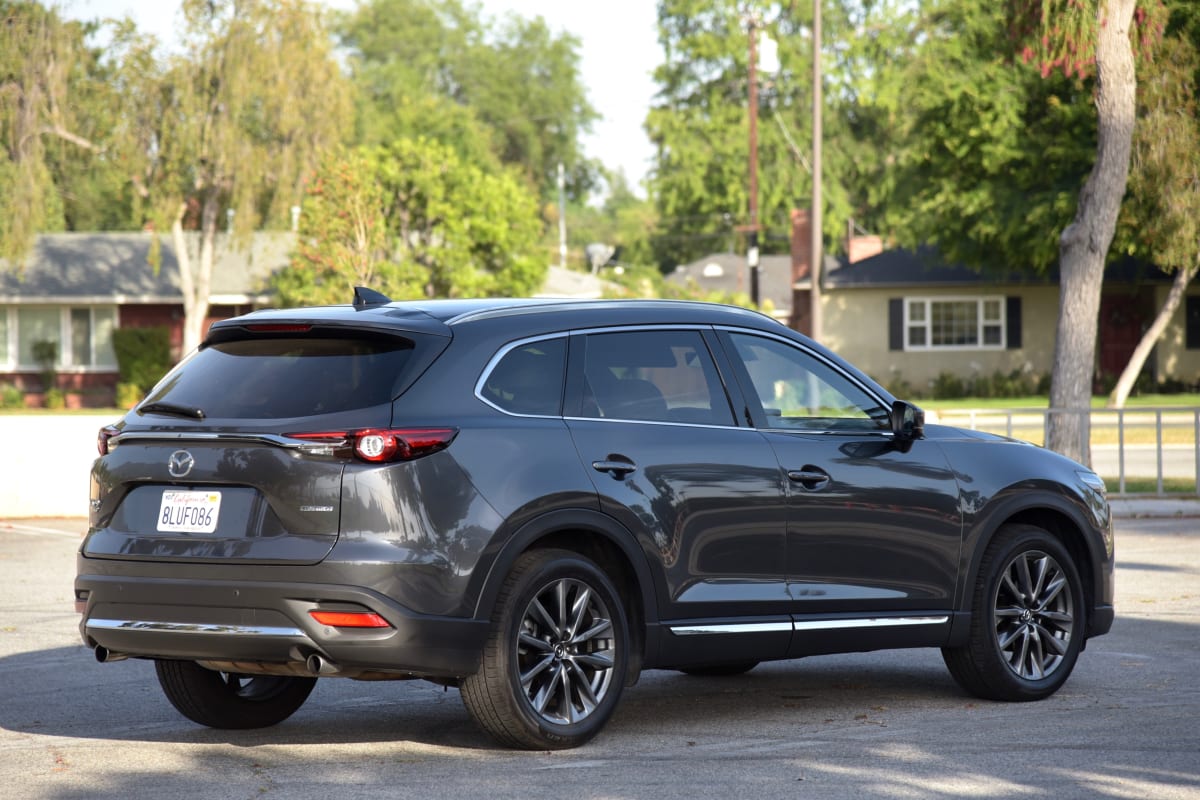
Then you need to go around a corner, and you’ll feel the heft of this thing. Nearly 4400 pounds will do that to you. I approached a concrete wall that delineated the boundaries of the exit lane I was in. It curved right. I steered right. The car kept going straight, more or less, until I was too close for my comfort, then like an oil tanker making a course correction, it slowly moved its huge flanks in rotation. There was never any danger of hitting the wall—I didn’t even get to the “marbles” up next to it. But it was a reminder that this machine is huge. In short, you mustn’t get fooled by the straight-line abilities but also take into account that you’re piloting a nearly 200-inch (sixteen and a half feet) beast here.
Does it need to be so big? One complaint that reviewers in various places have about the CX-9 is that its dimensions are not paid off by cargo capacity. If I were hauling family stuff, big-box store supplies, or giant-screen TVs with this car, I might feel the same. My complaint is different—the car ends up being so large that it is barely garage-able, all for the purpose of getting in a third row that’s really only marginally useful for adults. I fact, it was a bit of a struggle to get the car pulled forward in my driveway, which has narrow access on the sides due to my kitchen being on the left and my neighbor’s bushes being on the right. But if you ignore the dimensions, or you like the feeling of bigness, then this might be the car for you.
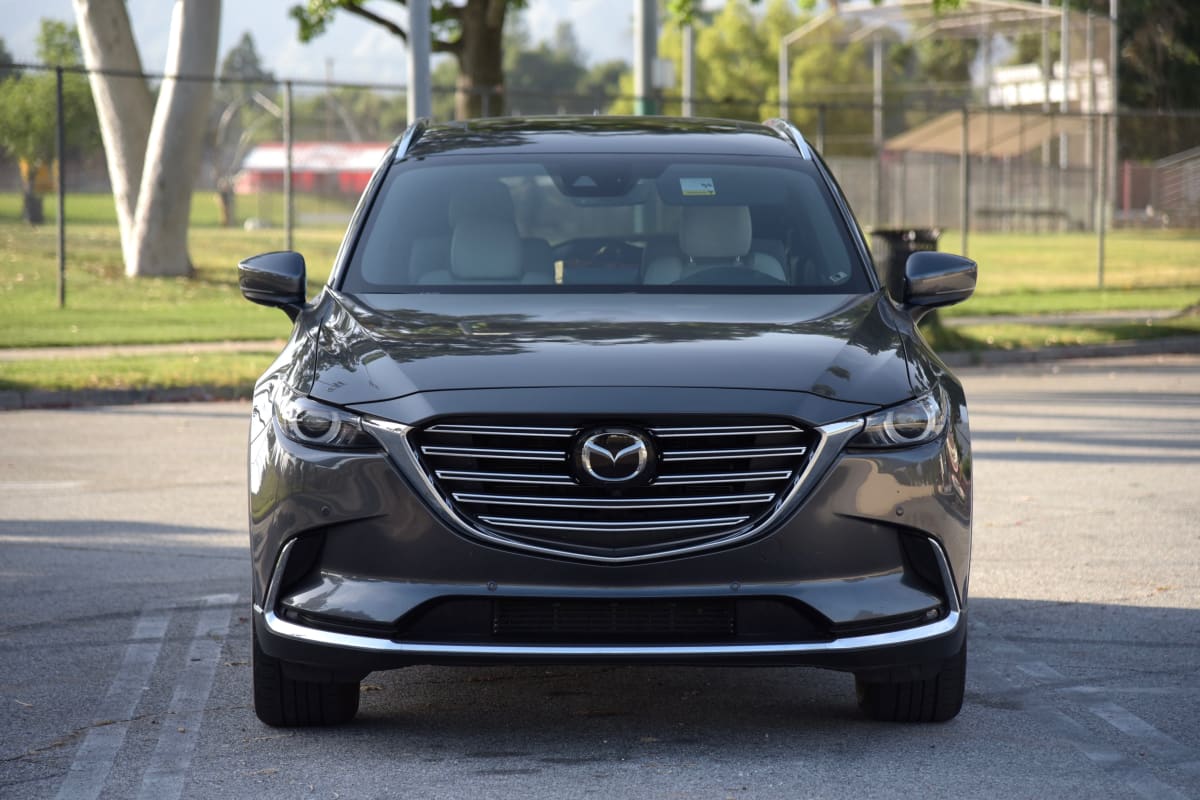
Size aside, the styling and appointments of the exterior are sharp. Chrome roof rails, chrome window surrounds, and chrome grill bars and lower surround are quality. The front end is tall and big, but the grill styles nicely.
The interior is even nicer. Moving away from the driver’s POV, the second-row passengers in the Signature edition have leather captain’s chairs, climate control, seat heater buttons, a center console, and sunshades that can be raised or lowered as desired.
In terms of cargo, the manual makes a point to say—and diagram—how you can get two golf bags in the back. (No mention of hockey bags, though.) Otherwise, unless you fold the rear seats down, the cargo area is more small-car-trunk sized than big-truck sized, but it’s fine for groceries and whatnot in everyday use.
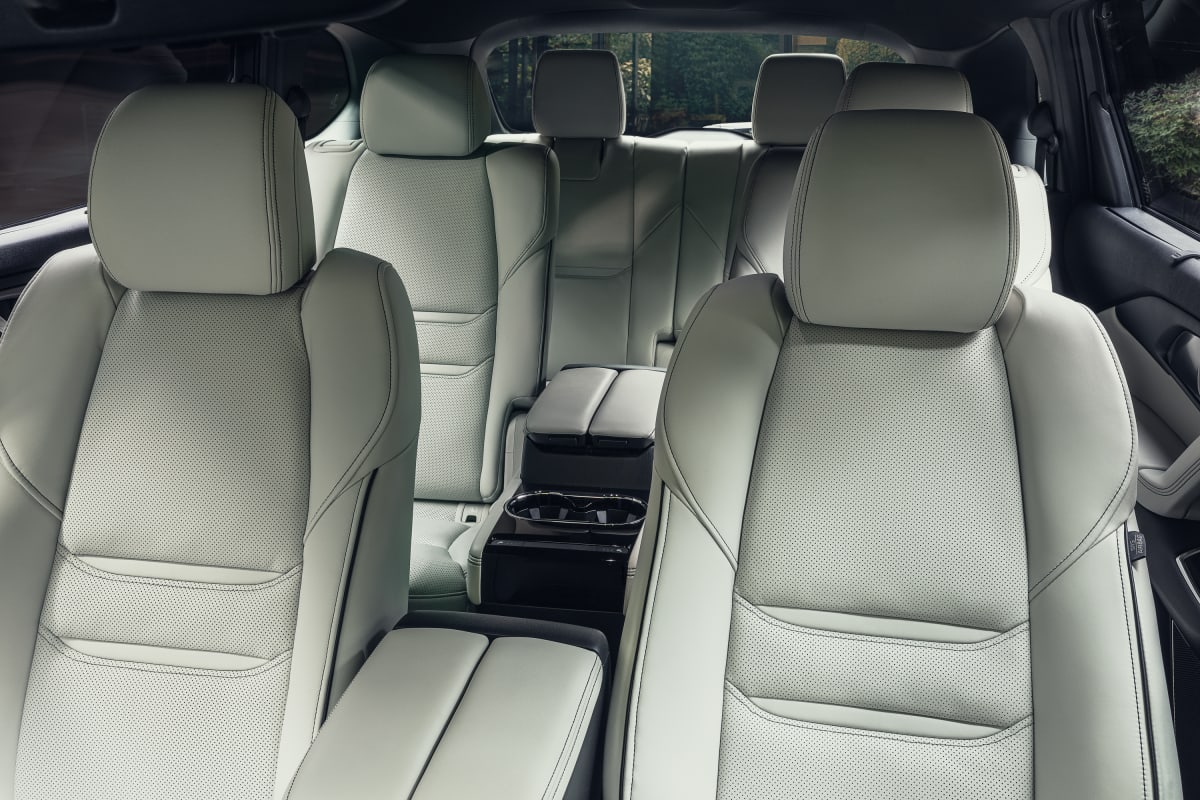
The third row is a two-person bench seat. My first attempt to get into it made me feel like Wil Farrell in Elf when he sits at the kids’ table, but if you do it right—it’s OK. You move the second-row seatback down and slide the seat forward, and it’s possible to get back there even if you’re a grownup, if not something you’d look forward to. Total seating is for six. One complaint—when you do get into the third row, you’ll bang your arm on the cupholder to your side, which sticks out unnecessarily.
To return to the POV of the driver—the large display screen can hold more than one image, or it can, for instance, show you what is labeled the “Fuel Economy Monitor,” which is a graph-type display showing how you did on gas on “this drive” or historically.
Ahead of you is a head’s-up display with your speed, the speed limit, and, when one comes into view, a stop sign icon as well as other indications.
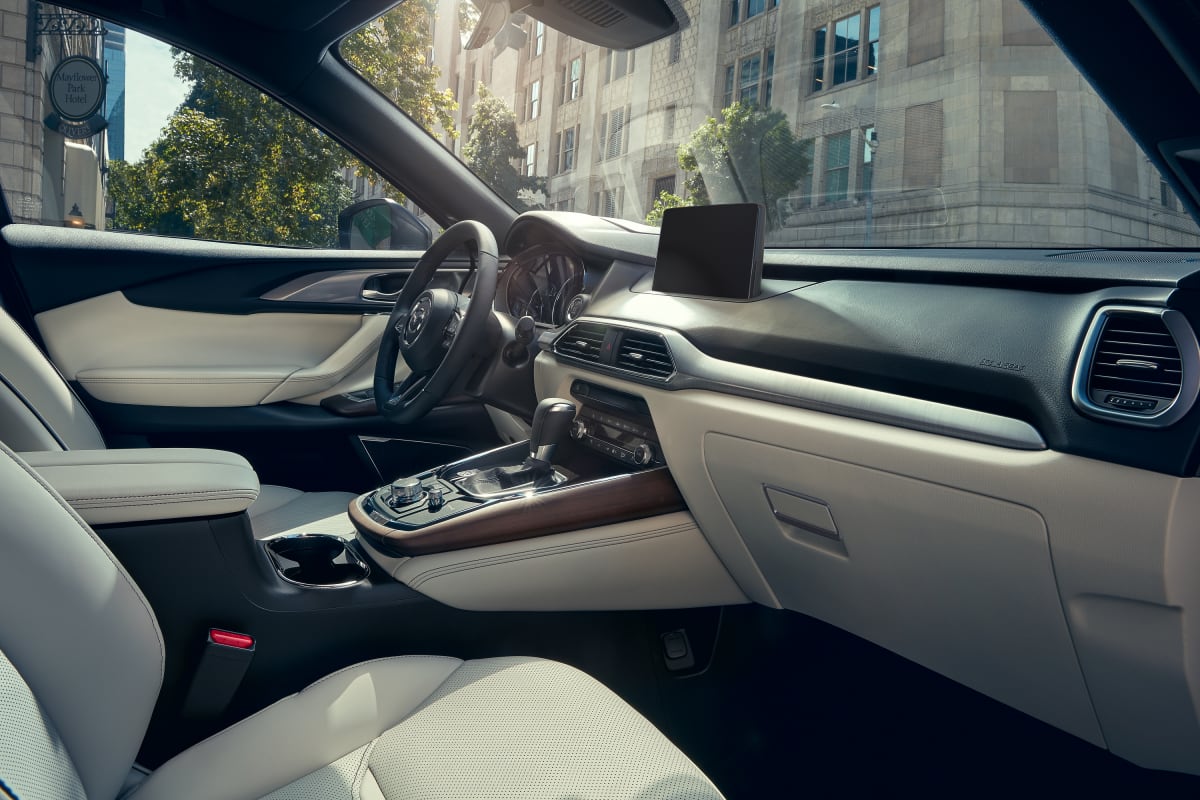
The radio/audio is controlled on the steering wheel or by two knobs, one to turn and one to turn or push. It’s a foolproof system once you figure it out. One thing I wasn’t liking at first was that, say I was listening to CNN on Satellite radio, and commercials came on. I’d push the smaller knob down, muting the ad. But hitting the button again picked it up where the ad left off, even if time went by. I learned to use the larger (toggle) knob to click up to the indicator of how much time had been recorded, then flick it to the right to get back to real time, allowing me to silence/skip ads.
There’s lots of tech, but one notable feature is an adaptive front lighting system which turns the headlights left or right with the steering wheel’s motion. I didn’t notice this function, which I assume means it worked unobtrusively.
Dislikes were relatively few: turning on the window lockout to keep kids (or a very cute miniature Schnauzer) from rolling down their windows also makes it impossible for the driver to roll windows up and down. Normally, it just overrides the passenger windows’ controls. The automatic dimming headlights seem like a good idea, but they aren’t very functional on the kinds of curvy freeways we have in SoCal. I often had to override them to turn the lights to bright, and I finally shut the system off altogether.
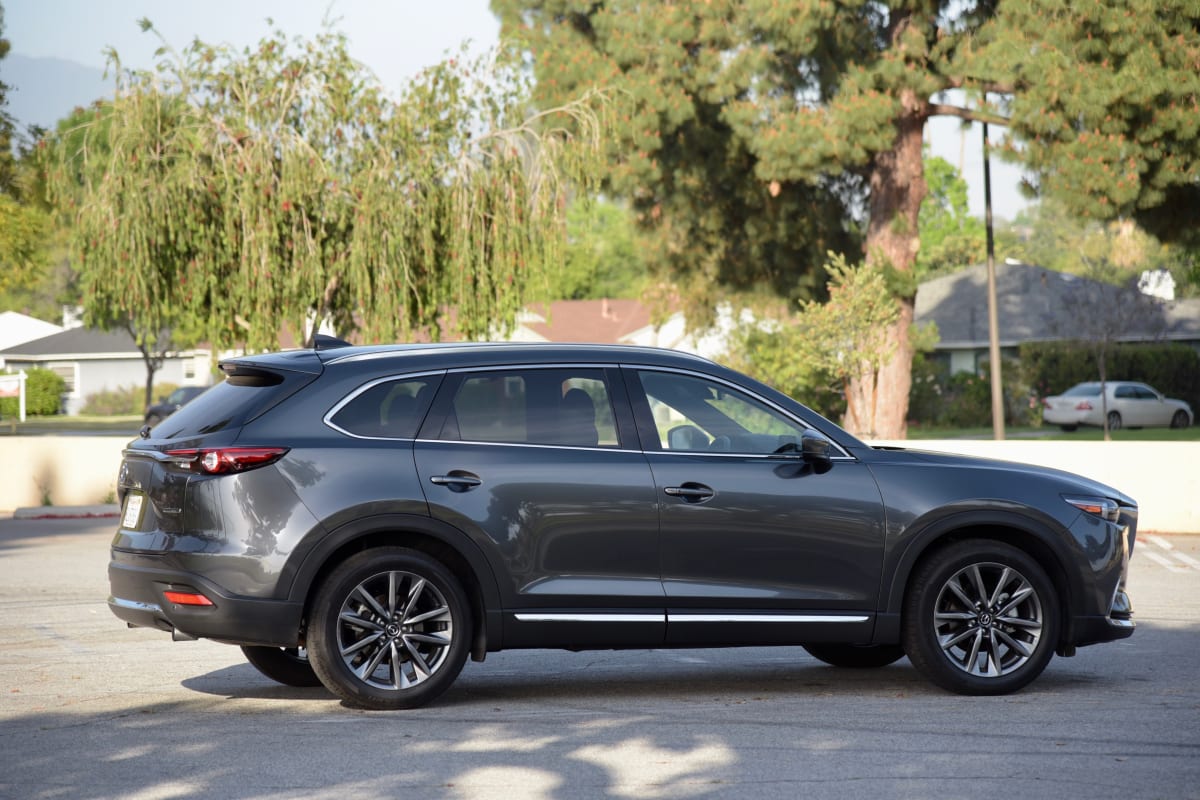
I also found it difficult seeing around the enormous A-pillars, a very practical safety issue. This problem was exacerbated by very large exterior rearview mirrors.
In all, though, the CX-9 is not overly fussy nor intimidating, and most of what the car does, you can command using intuitive logic—no first weekend spent reading the manual.
Some of what you might not notice at first include neat features on the display ahead of you. There’s an analogue tachometer to the left in the driver’s display, and temperature and gas gauges to the right. In the center is an electronic speedo display. You also see the speed limit in a tiny replica sign to the top right of the display, and what’s really nifty is that whatever its limit is—say 40 mph—is reflected in a tiny red notch on the number of that limit in the sweep speedometer display in front of you. So if the speed changes from 40 to 35 mph, the little red notch moves from next to the 40 to next to the 35. Cool.
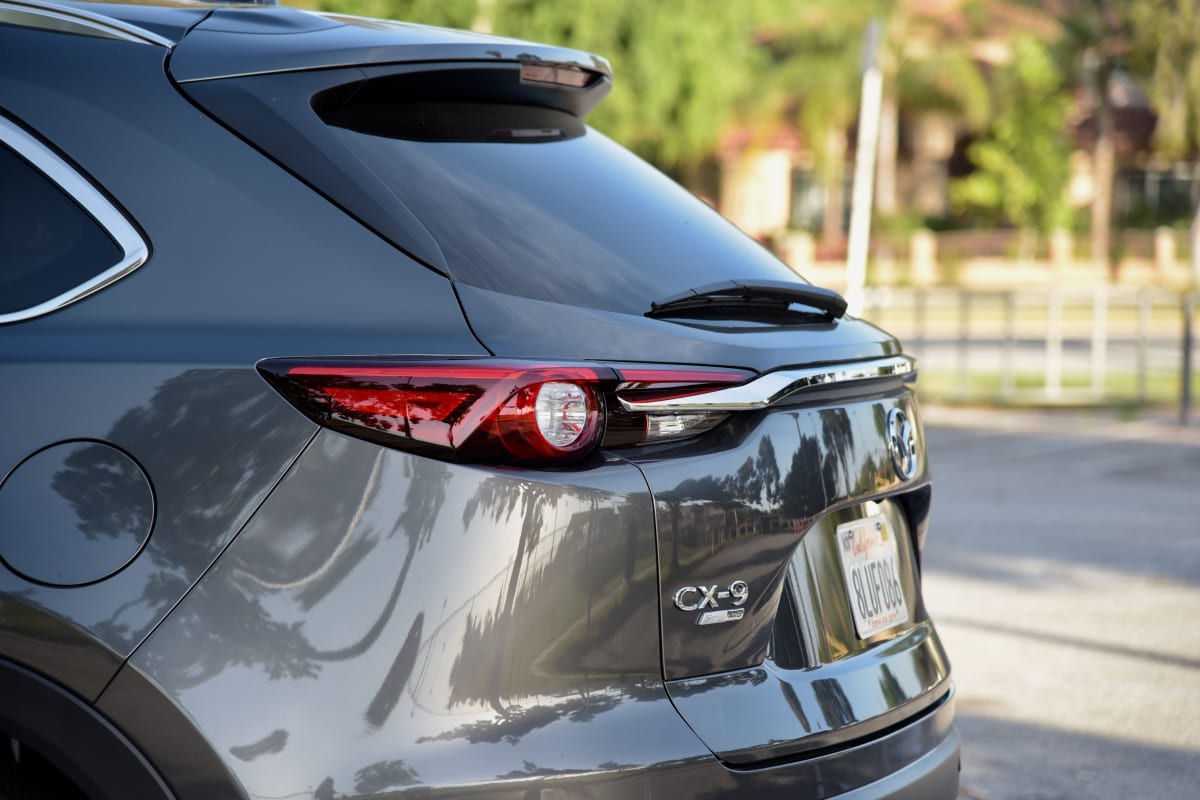
The car in this 2020 generation (the model’s debut was 2016) comes with standard safety stuff that detects immanent collisions, pedestrians in the path, blind-spot problems, lane-departure issues, etc. It’s called iActivsense by Mazda. I didn’t have the need to test any of it. Nobody else is on the road these days to get in the way.
So your decision, it seems, comes down to this: do you need something this big, and if so, is the bigness of this car paid off by functionality? The problem with the CX-9 is not its size. It’s that for the size, it doesn’t have the most commodious third row nor cargo capacity.
But the styling, the feel of quality and luxury, the functionality of the electronics, the super-nifty radio control dials, and the zoominess of the CX-9 make it feel a bit like a sport-luxury car, and to me, would make the daily drive quite pleasant. You would just have to hope that the big boy parking spaces weren’t all taken by the time you got to the office.
